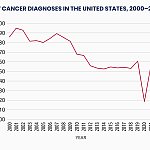
Experts recommend from 150 to 300 minutes of moderate to vigorous exercise each week — along with regular muscle-strengthening — for achieving and maintaining optimal health.
A new review and meta-analysis distills what previous research has revealed about the relationship between the amount of time one exercises each week and how that affects one’s health.
The authors of the review analyzed the experiences of 6,880 participants in the 116 included randomized clinical trials. All were over the age of 18 and had overweight or obesity.
The researchers assessed the results of different exercise regimens by evaluating an array of measurements, including body weight, waist circumference, body fat, adverse events, medication use reduction, and health-related quality of life scores.
They found that body weight, waist circumference, and body fat decreased steadily as the number of exercise minutes increased. These findings agree with
People who engaged in just 30 minutes of exercise per week experienced modest improvements in body weight, waist circumference, and body fat.
However, clinically significant reductions in body weight, waist circumference, and body fat were achieved only by participants who exercised 150 to 300 minutes per week.
The metastudy therefore suggests that to achieve clinically meaningful results, exercising at least 150 minutes each week is required.
The authors’ analysis was unable to find strong evidence of a link between aerobic exercise and health-related quality of life. They also did not find any significant reduction in medication use, though they suggest that may have to do with the trials included in the metastudy.
The review is published in
As little as 30 minutes of moderate exercise per week can deliver modest, incremental improvements, but it is best to “think of this as a step in the right direction,” said Sarah Pelc Graca, NASM-Certified Personal Trainer (CPT) and Women’s Fitness Specialist, who was not involved in the metastudy.
“While encouraging, [it] may not yet be large enough to have a meaningful impact on overall health markers or risk factors for chronic diseases,” she said.
On the other hand, Graca pointed out, “‘clinically important reductions’ are changes significant enough to improve health in measurable ways, such as lowering the risk of heart disease, type 2 diabetes, or other conditions related to excess weight and body fat.”
Mir Ali, MD, a board-certified general surgeon, bariatric surgeon and medical director of MemorialCare Surgical Weight Loss Center at Orange Coast Medical Center in Fountain Valley, CA, who was also not involved in the review, explained the potential mechanisms behind the findings to Medical News Today.
“By exercising more frequently, a person is more able to keep their metabolic rate up and thus burn more calories. The longer someone can exercise, they will see more benefits,” Ali told us.
Graca noted that this also means, “For individuals who cannot exercise for long periods, incorporating more vigorous activities may help maximize benefits within a shorter timeframe.”
Hogue said, though, that the study documented “no credible subgroup differences based on intensity.”
The review also found that while moderate-intensity exercise for 150 to 300 minutes a week is excellent for health, ramping things up a bit can produce even greater benefits.
“The more intensely a person exercises, the more calories they burn and the greater benefit they will see,” Ali said.
“More intense exercise led [in the review] to greater benefits. This is in line with burning more calories and raising the metabolism more with more intensive exercise,” he added.
Finding the time to exercise more can be challenging for many people.
“I advise my patients to start slowly and increase their exercise as their fitness improves,” Ali said.
Some ways to work your exercise minutes into a busy day:
“The important thing is to find an activity the person enjoys, then it would not seem so difficult [to incorporate it into the daily routine]. Even just walking 30 minutes a day has been shown to have significant benefits. As fitness improves, then intensity can be increased to improve the benefits even further.”
– Mir Ali, MD





